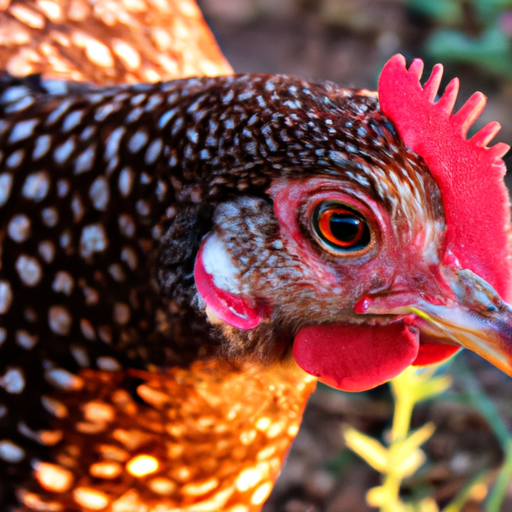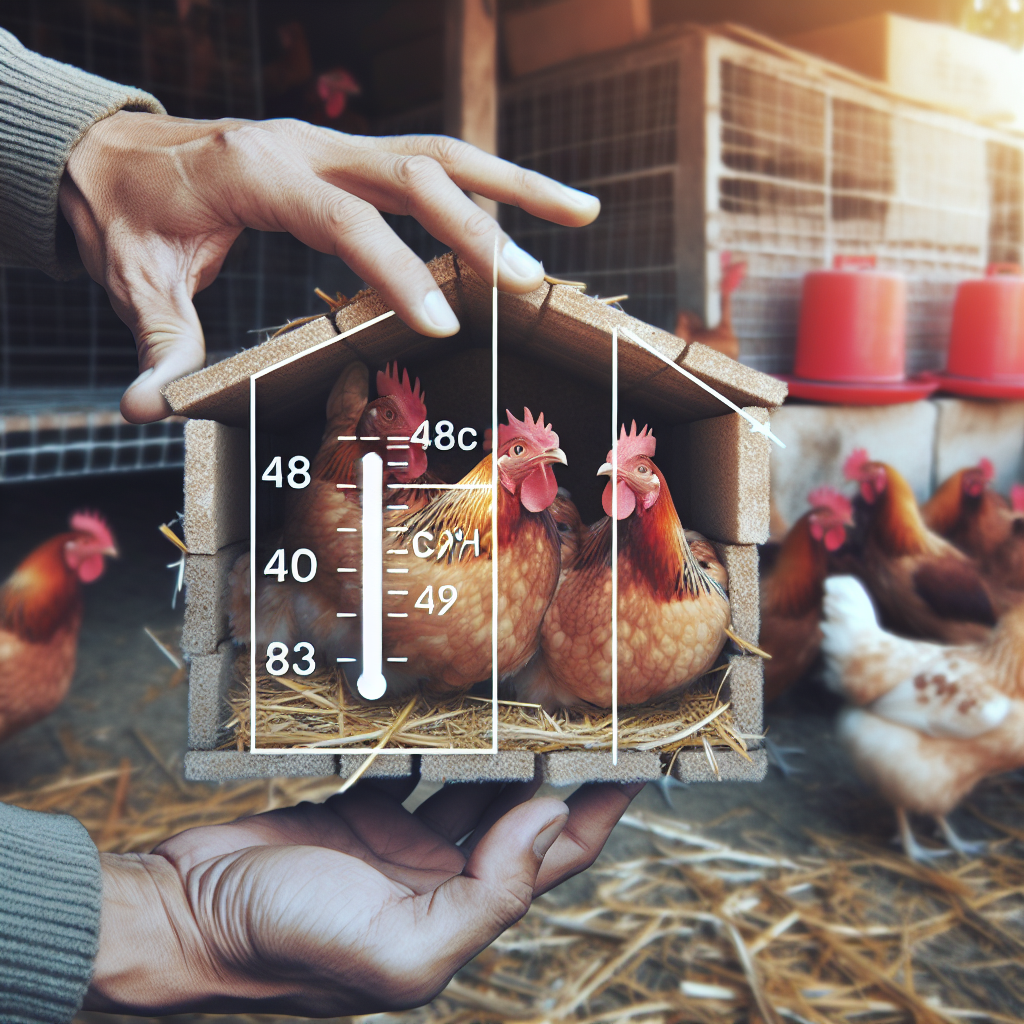Living in the city doesn’t mean you have to give up your dreams of raising chickens! Whether you’re a seasoned urban dweller or new to the idea of backyard farming, this article will provide you with all the information you need to know about raising chickens in an urban setting. From space requirements to zoning regulations, we’ll explore the basics that you should consider before starting your own backyard chicken coop. So, if you’ve ever wondered if it’s possible to have feathered friends in the heart of the concrete jungle, keep reading to find out how you can make it a reality.
Choosing the Right Breed
Size
When it comes to choosing the right breed of chickens for your urban setting, size is an important factor to consider. You’ll want to select a breed that is suitable for the available space you have. Smaller breeds, such as bantams, are a great choice for smaller yards or even rooftop coops. Larger breeds, on the other hand, may require more room to roam and may not be the best fit for a confined urban space.
Temperament
Another crucial factor to consider when selecting a breed is temperament. Some breeds are more docile and friendly, making them ideal for families with children or for individuals who enjoy interacting with their chickens. Other breeds may be more skittish or independent, which can make handling and socializing with them more challenging. Consider your personal preferences and the level of interaction you desire with your chickens when choosing a breed.
Egg Production
If your primary goal in raising chickens is to enjoy a steady supply of fresh eggs, then considering a breed’s egg production capabilities is vital. Some breeds are renowned for their exceptional egg-laying abilities and can produce a significant number of eggs each week. These breeds, such as Rhode Island Reds or Leghorns, are great choices if you’re looking to maximize your egg production. However, keep in mind that some breeds, especially heritage or exotic breeds, may not lay as many eggs but make up for it with unique characteristics and beautiful plumage.
Understanding Local Regulations
Zoning Laws
Before embarking on your urban chicken-raising adventure, it’s essential to familiarize yourself with the local zoning laws and regulations in your area. Zoning laws dictate whether or not you can keep chickens in your particular location and may also include specific restrictions on things like the number of chickens allowed and the distance between coops and neighboring properties. By understanding and adhering to these regulations, you can ensure a smooth and lawful chicken-keeping experience.
Permits and Licenses
In some urban areas, obtaining permits or licenses may be required to keep chickens on your property. These permits often involve a small fee and may come with certain conditions or inspections to ensure the welfare of the chickens and the surrounding community. Check with your local government or animal control agency to determine if any permits or licenses are necessary for keeping chickens in your urban setting.
Providing Adequate Space
Coop Size
Space is a precious commodity in an urban setting, so it’s important to make the most of the available area when designing your chicken coop. Coop size is crucial, as cramped quarters can lead to stress, health issues, and decreased egg production. As a general rule of thumb, allow at least 4 square feet of coop space per chicken. This ensures they have enough room to move around comfortably and engage in natural behaviors such as scratching and dust bathing.
Outdoor Area
While the coop itself is essential, providing your chickens with access to an outdoor area is equally important. Chickens love to forage and explore, so having a secure outdoor space where they can roam safely is key. Consider using chicken-friendly fencing or netting to create an enclosed outdoor area. This will allow your chickens to enjoy fresh air, exercise, and access to natural elements like grass and insects, which contribute to their overall health and well-being.
Feeding and Nutrition
Balanced Diet
Proper nutrition is crucial for healthy and productive chickens. Providing a balanced diet is essential, and it typically consists of a combination of commercial chicken feed, grains, fruits, vegetables, and occasional treats. The right balance of protein, carbohydrates, fats, vitamins, and minerals ensures optimal growth, egg production, and overall health for your feathered friends. Consult with local feed suppliers or poultry experts to determine the ideal feed mix for your specific chicken breed and age group.
Supplements
In addition to a balanced diet, chickens may benefit from certain supplements to enhance their overall health and well-being. Calcium supplements, such as crushed oyster shells, help maintain strong eggshells, while probiotics can support gut health and digestion. You might also consider providing grit to aid in the grinding and digestion of food. It’s important to remember that supplements should never replace a nutritious diet but rather complement it to ensure your chickens’ dietary needs are fully met.
Ensuring Proper Ventilation
Importance of Ventilation
Proper ventilation is a crucial aspect of maintaining a healthy and comfortable environment for your urban chickens. Good ventilation helps remove excess moisture, odors, and ammonia from the coop, preventing respiratory issues and promoting better overall air quality. It also helps regulate temperature, preventing both overheating in the summer and excessive cold in the winter. Good air circulation can significantly reduce the risk of respiratory infections and other health problems in your flock.
Ventilation Options
There are several ventilation options to consider for your chicken coop. Vents or windows strategically placed throughout the coop can promote air circulation. You can also consider using ventilated roofing materials or adding exhaust fans to help remove stale air and prevent condensation. Additionally, ensuring that the coop has sufficient openings to allow for cross-ventilation is important. However, it’s essential to strike a balance between ventilation and exposing chickens to drafts, as excessive drafts can be detrimental to their health.
Managing Waste
Composting
Managing chicken waste is an important aspect of urban chicken keeping. One effective and environmentally friendly way to handle waste is through composting. Chicken manure, combined with bedding materials like straw or wood shavings, can create nutrient-rich compost for your garden. Turning the compost regularly and allowing it to break down over time will transform it into a valuable fertilizer. This not only reduces waste but also provides a sustainable solution for enhancing your urban gardening efforts.
Sanitation
Maintaining a clean and sanitary coop is essential for the health and well-being of your flock. Regularly removing soiled bedding and replacing it with fresh material is crucial to prevent the buildup of harmful bacteria, parasites, and unpleasant odors. Keeping the coop and outdoor area tidy and free from debris will go a long way in preventing health issues and ensuring a pleasant environment for both you and your chickens.
Predator Protection
Fencing
Protecting your chickens from potential predators is paramount in an urban setting, where the proximity of other homes or green spaces can attract wildlife. Installing sturdy fencing around your coop and outdoor area is crucial. Choose fencing materials that are strong, such as hardware cloth, to prevent predators from digging under or squeezing through. Consider burying the fence underground or extending it slightly above ground level to prevent burrowing animals from gaining access.
Secure Coop Design
In addition to proper fencing, ensuring that your chicken coop is securely designed is essential for predator protection. Make sure all openings, including windows, vents, and doors, are covered with strong, predator-proof wire mesh. Reinforce any weak spots or gaps that could allow predators to enter. Additionally, consider adding locks or latches to coop doors to prevent unwanted access. Regularly inspect and maintain the coop to ensure its integrity and the safety of your flock.
Healthcare and Veterinary Support
Vaccinations
Just like any other pets, chickens may require vaccinations to protect them from common diseases. Consult with a local veterinarian who specializes in poultry to determine the vaccination schedule recommended for your specific area and chicken breed. Vaccinations can help prevent serious diseases and ensure the overall health and longevity of your flock. Regular check-ups and consultations with a poultry veterinarian are also advisable to address any health concerns or issues that may arise.
Disease Prevention
Apart from vaccinations, there are several measures you can take to prevent the spread of diseases within your flock. Quarantining new chickens before introducing them to the existing flock can help prevent the transmission of any potential diseases or parasites. Maintaining proper sanitation practices, such as cleaning and disinfecting the coop regularly, can also minimize the risk of disease transmission. Additionally, providing a stress-free environment, good nutrition, and minimizing overcrowding are essential for boosting the chickens’ immune system and preventing disease outbreaks.
Noise Considerations
Quiet Breeds
Living in an urban setting means being considerate of neighbors and noise levels. Luckily, there are chicken breeds known for their quiet nature. Some quieter breeds include Silkies, Brahmas, and Sussex. These breeds tend to be more docile and have softer clucks, making them suitable for noise-sensitive environments. Selecting quieter breeds can help ensure a peaceful coexistence with your neighbors while still enjoying the benefits of urban chicken keeping.
Noise Reduction Techniques
In addition to choosing quieter breeds, there are several noise reduction techniques you can employ to keep things peaceful in your urban chicken coop. One effective method is to provide plenty of stimulation and enrichment for your chickens. This will keep them engaged and less likely to engage in excessive noise-making behaviors. Another technique is to insulate the chicken coop with sound-absorbing materials, such as foam or acoustic panels, to minimize noise transmission to the surrounding area.
Bonding and Socialization
Handling and Interaction
Developing a bond with your urban chickens is not only rewarding but can also contribute to their overall well-being. Regular handling and interaction can help chickens become more comfortable around humans, which can make routine health check-ups and maintenance tasks easier. Approach your chickens calmly and gently, using positive reinforcement techniques such as treats. Spending quality time with your chickens will not only strengthen your bond but also provide opportunities for you to observe their health and behavior closely.
Introducing New Chickens
If you plan to expand your flock or introduce new chickens, it’s important to do so gradually and thoughtfully. Chickens have a strict pecking order, and introducing new members can disrupt the established hierarchy, leading to aggression or bullying. To minimize stress and conflict, consider using a separate but adjacent space for the new chickens to acclimate to the existing flock. Allow supervised interactions through a fence or partition before eventually integrating them fully. This gradual approach allows chickens to establish a new pecking order without causing excessive stress or harm.




